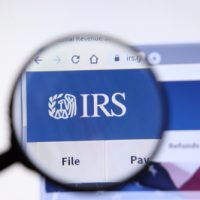 The Internal Revenue Service (IRS) recently announced a significant development for higher paid employees participating in Roth retirement plans. Under the Secure Act 2.0, the IRS has postponed the implementation of mandatory Roth catch-up contributions. In this blog post, we aim to educate our customers about this postponement, its potential impact, and what it means for higher paid employees.
The Internal Revenue Service (IRS) recently announced a significant development for higher paid employees participating in Roth retirement plans. Under the Secure Act 2.0, the IRS has postponed the implementation of mandatory Roth catch-up contributions. In this blog post, we aim to educate our customers about this postponement, its potential impact, and what it means for higher paid employees.
Understanding Roth Contributions and Catch-up Contributions:
Before diving into the details of this postponement, it is important to have a clear understanding of Roth contributions and catch-up contributions. Contributions to a Roth retirement plan are made with after-tax dollars, meaning that the contributions are not tax-deductible upfront. However, qualified distributions, including earnings, can be withdrawn tax-free in retirement.
Catch-up contributions, on the other hand, are additional contributions that individuals aged 50 and above can make to boost their retirement savings. These catch-up contributions are typically subject to annual limits set by the IRS.
The Secure Act 2.0:
The Secure Act 2.0 is an expansion of the original Secure Act that was signed into law in late 2019. Its primary aim is to enhance retirement security for Americans. One of the provisions included in the Secure Act 2.0 was the introduction of mandatory Roth catch-up contributions for higher paid employees.
Postponement of Mandatory Roth Catch-up Contributions:
While the Secure Act 2.0 initially mandated that higher paid employees make Roth catch-up contributions, the IRS has now postponed the implementation of this requirement. This postponement comes as a result of various considerations and feedback from employers and industry experts.
Implications for Higher Paid Employees:
For higher paid employees, this postponement provides a temporary reprieve from the mandatory Roth catch-up contributions. This means that employees in this category can continue making traditional, pre-tax catch-up contributions to their retirement plans instead of being required to contribute on an after-tax basis.
Benefits and Considerations for Higher Paid Employees:
1. Flexibility: The postponement of mandatory Roth catch-up contributions grants higher paid employees the flexibility to choose the most suitable contribution strategy for their individual financial situations.
2. Tax-Advantaged Savings: By continuing to make pre-tax catch-up contributions, higher paid employees can reduce their current taxable income while potentially benefiting from lower tax rates in retirement.
3. Longer-Term Planning: Higher paid employees who were concerned about the immediate implementation of mandatory Roth catch-up contributions now have more time to consider and plan for the impact on their overall retirement strategy.
4. Future Contributions: With the postponement, higher paid employees can prioritize other financial goals, such as debt repayment or saving for college, without the added burden of mandatory Roth catch-up contributions.
Next Steps and Possible Revisions:
While the postponement offers temporary relief, it is important for higher paid employees to remain vigilant and stay informed about any potential revisions to the Secure Act 2.0. The IRS continues to evaluate the implementation of mandatory Roth catch-up contributions, and further changes or clarifications may arise in the future.
It is advisable for higher paid employees to consult with their trusted financial advisors to understand the implications of this postponement and to determine the most suitable retirement savings strategy moving forward.
Conclusion:
The IRS’s decision to postpone the mandatory Roth catch-up contributions for higher paid employees under the Secure Act 2.0 provides additional flexibility and breathing room. It allows employees in this category to continue making pre-tax catch-up contributions, which may be advantageous for various financial planning considerations. Nevertheless, it is crucial for individuals to stay up to date with any future developments and seek professional advice to optimize their retirement savings strategy.
